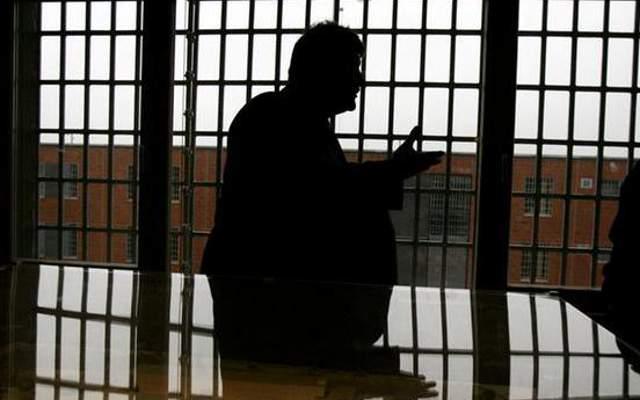
Home quote
The great poet was not a lawyer. But his cherished words: "If you studied as necessary, you would have your own wisdom; however, when you climb to heaven you say “this is not us, this is not me"- is important for us, today's lawyers. Here is Article 374 CCP, which defines the contents of the guilty verdict. If the judges of district and higher courts read it carefully, many of our citizens would not have overserved their terms and their rights would not have been breached, and the State would not have paid hundred thousands of hryvnias in the execution of judgments of the European Court of Human Rights.
Publications
«Do not skip the titles, do not skip the commas», or the Use of reading poetry by Taras Shevchenko
It would seem ridiculous - how many times could one burn one’s fingers? There was a judgment by the European Court in the case of "Kharchenko v. Ukraine", which drew attention to human rights abuses under the old CCP. Ukraine declared that the new CCP has fixed all problems and our citizens do not sit in jail without court decisions. Then the European Court had to adopt a judgment in the case of “Chanyev v. Ukraine”, where it was stated that the new CCP allows the same violations. Thankfully, the amount of compensation for non-pecuniary damage was evaluated at the rate of 4,500 euros only...
As one of the judges of the Court of Cassation stated, after the case of “Chanyev v. Ukraine” the problem of human rights violations in detention has been solved. As if! Here, the higher court judge D. remanded a suspect for over nine months, which he was not entitled to do, because that person was not accused of a particularly grave crime. Did the higher court judge really read the relevant provision, which indicated that the extension of the period of detention for over nine months is permitted only in respect of persons who are accused of particularly grave crimes? Probably, he did not read it, or probably he had not studied properly, having therefore drafted an unlawful decision, which is not even subject to appeal under our procedural rules... This is how they write on the judicial Olympus: this is not us, this is not me… like, this is the legislator who decided so, and it is impossible to correct a mistake therefore... Well, the legislator has really messed up here...
And here is Article 374 CCP regarding the content of the sentence. The legislator envisaged that in case of an acquitting judgment, the court is entitled to specify that detention is applied until the judgment becomes final. However, if it comes to a conviction, such a rule is not envisaged. Here, general rules under Articles 197, 203, 331 CCP come into scene. This means that a preventive measure cannot be fixed for a period greater than 60 days, and in accordance with Article 331 CCP, a court must of its own motion verify every two months whether the circumstances for changing a preventive measure and stopping further detention have appeared.
Whatever guilty verdict you take, you will see everywhere the judges’ phrase to the effect that the person should remain in detention until the verdict becomes final, i.e. as if the verdict is in fact an acquitting judgment. And here we have a kind of an oxymoron. What a judge has written in the operative part of the verdict takes effect not from the moment of the delivery of the verdict, but after it becomes final. Accordingly, before the verdict becomes final, the rule on keeping in detention is not binding... These logical constructions are being ignored... And this is where it leads to.
A guilty verdict was delivered in respect of S., while the phrase about keeping in detention was written as if it was an acquitting judgment - that is, until the verdict becomes final. An appeal was lodged, which was examined for one and a half years. As the result, S. was kept in detention one and a half years instead of 60 days, and the court, contrary to Article 331 CCP, failed to resolve the issue either about the change of a preventive measure, or its extension.
There are situations where a person was held in custody, the court delivered a guilty verdict, having determined a term of imprisonment for the person and having left a preventive measure in the form of detention in force until the verdicts becomes final. Because of the duration of detention in the detention centre the term of imprisonment as fixed by the court ended before the verdict became final (e.g. due to lodging of appeal against it). The person is released only after the verdict becomes final and the prison receives a notice thereof. As the result, the person is kept in detention over the term of imprisonment to which he was sentenced.
Courts and prosecutors consider such practice to be correct. But it is contrary to Article 374 CCP, because for a guilty verdict this article does not envisage application of a preventive measure in a form of detention until the verdict becomes final. A court makes a mistake by setting such a specific preventive measure, which is envisaged only for acquitting judgments. That means that courts have once again not read the law - Article 374 CCP.
I will tell more. A competition for future prosecutors is underway now, and this question is also envisaged for the participants. The answer is considered correct if the applicant for the position of a prosecutor has answered that a sentenced person is subject to release not when the term of imprisonment fixed by the court has expired, but when the verdict became final and the prison has received the notice thereof. As the result, the person continues to remain in detention over the term fixed by the court - 6 months or even more. Thus, the Prosecutor General’s Office, which prepared these questions for a competition, is well aware of this problem...
Over some time and in these cases, the European Court in its judgment will oblige Ukraine to pay a few thousand euros to the applicant and will remind that the law should be read the way the poet wrote: from word to word, not skipping a title or comma.
This article “Do not skip the titles, do not skip the commas», or the Use of reading poetry by Taras Shevchenko”, written by Mr Yaroslav Zeykan, advocate, Head of the UNBA Committee on Legislative Initiatives for the Bar, was published in the legal newspaper "Law and Business" (issue no. 35-36 (1229-1230), 01.09-11.09.2015).
About the author

Yaroslav Zeykan
Advocate, the Head of the UNBA Committee on Legislative Initiatives for the Bar
Other publications author
Publications

Censor.net Protecting advocates – protecting justice: addressing concerns about the new law

Ihor Kolesnykov A BRIEF SUMMARY REGARDING THE APPLICATION OF THE ORDER ON EXTENDED CONFISCATION IN LATVIA REGARDING FINANCIAL ASSETS OF…

Valentyn Gvozdiy WORKING IN A WAR ZONE

Lydia Izovitova Formula of perfection

Sergiy Vylkov Our judicial system is so built that courts do not trust advocates

Iryna Vasylyk Advocacy in the proclamation of Independence of Ukraine

Oleksandr DULSKY When we cross the border of the Supreme Anti-Corruption Court, we get into another department of the National Anti-Corruption…

Vadym Krasnyk The UNBA will work, and all obstacles and restrictions are only temporary inconveniences
